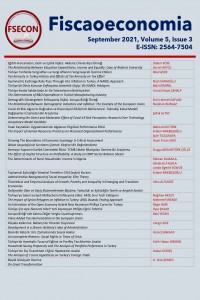The Determinants of Rural Households’ Income in Nigeria
The Determinants of Rural Households’ Income in Nigeria
Author(s): Ridwan Mukaila, Abraham Falola, Lynda Ogechi EgwueSubject(s): Developing nations, Rural and urban sociology, Socio-Economic Research
Published by: Ahmet Arif Eren
Keywords: developing countries; Income; High poverty rate; Nigeria; Rural households;
Summary/Abstract: Most rural areas in developing nations were faced with the problem of a high poverty rate. A better understanding of drivers of rural household income is a powerful guide for proper intervention towards poverty alleviation and better wellbeing. This study, therefore, investigates the drivers of rural households’ income in Nigeria. Data sourced from the National Bureau of Statistics were analysed using descriptive statistics and multiple regression. The results revealed that the majority of rural households’ heads were males who were married with an average household size of 6 persons and a high dependency ratio (0.94). The majority had a low level of education, depends on agricultural activities and earned a monthly income of N42,142.70. Gender of household’s head, household size and years of education were the significant factors enhancing rural households’ income while dependency ratio was the factor inhibiting rural households’ income. Thus, rural education and women empowerment is needed to boost rural income.
Journal: Fiscaoeconomia
- Issue Year: 5/2021
- Issue No: 3
- Page Range: 978-989
- Page Count: 12
- Language: English

